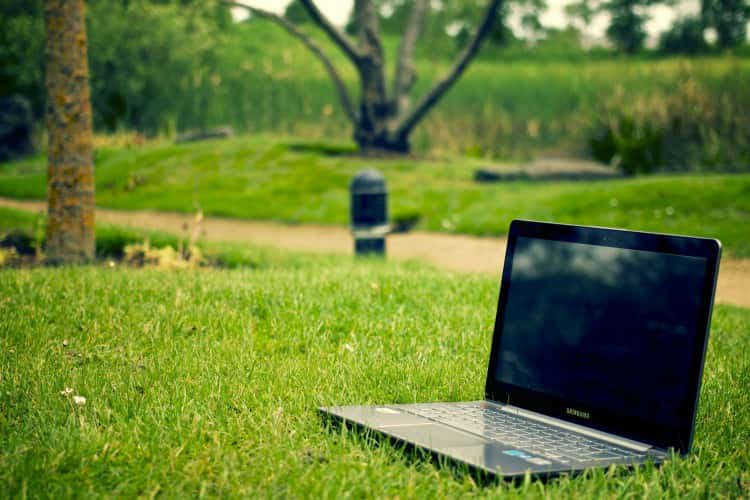
It may be an alarming thought, but the reality is that pollution is ruining our planet. By February 2018, air pollution levels had already exceeded the legal limit in London for the year. Not only is pollution proven to have a detrimental impact on people’s health, but it also contributes to global warming which is damaging the earth as we know it, day by day.
In fact, only this year a child’s death was directly linked to toxic levels of pollution in London – the first of its kind. It was reported that she lived in a pollution ‘hotspot’ by a very busy road in the capital. Unfortunately, there are also thousands of more deaths that cite poor air quality as a contributing factor.
It’s clear that the stakes are higher than ever with people’s lives being immediately at risk. This has enraged business owners and prompted them to do more to combat pollution. Responsible business owners are now thinking of ways to lessen their damaging impact on the environment while still successfully running their businesses.
The Responsibility of Businesses
Businesses must first accept that they have a certain responsibility to tackle pollution, even if it’s just to set an example. The level of pollution that a company contributes to the environment depends on the nature of the business. For example, many food businesses are known to waste food daily. This sparks controversy as many point out it could be given to homeless people or recycled in a food waste bin to eventually be made into compost. To tackle this, some companies, like Pret A Manger for example, vow to give the unsold food at the end of the day to homeless people, as well as a contribution of the sales of their food.
Furthermore, for those businesses who operate out of an office or warehouse, there are plenty of ways they can reduce their environmental impact. One of the most important ways is to ban the use of plastic, though this is a lengthy and occasionally expensive process, the positive end effect is worth it.
Banning Plastic Use
One of the UK’s biggest plastic injection and moulding companies has adapted to a more eco-friendly way of manufacturing its products by creating 100% recyclable materials. It now gives clients eco-friendly options when creating their bespoke plastic products. It’s hoped that they will pave the way for other companies to follow when it comes to plastic.
Though banning plastic altogether may not be viable, there are certainly steps that businesses can take to cut down on use. Simply replacing some everyday products with paper or other recyclable materials can make a big difference in the long run.
Reduce, Reuse And Recycle
With rapid advancements in modern technology, it seems appropriate to utilise the developments to benefit the environment. The idea of going paperless 10 years ago would have caused chaos for nearly every business. However, it’s easily achievable for businesses now thanks to computers and machinery. Now, you can send an email in replacement of a letter and file your documents on a hard drive rather than in physical drawers filled with paper.
In addition, recycling should be encouraged in the workplace. Having designated recycling bins clearly labelled helps to promote recycling among workers. You could also upcycle old office furniture by repainting it or buying new materials to fix anything that’s broken. A fantastic way for the business to save money, and to help the business at the same time.
The waste hierarchy doesn’t just refer to recycling. Energy wastage is a big problem in many industries, namely offices. An easy way to sustain an environmentally friendly business is to implement restrictions on energy usage. One way to do this is through using energy saving lightbulbs and making sure that all equipment is completely switched off at night – not just left on standby.
Combating Pollution In The Workplace
As previously mentioned, business owners have been looking at installing air purification devices and ventilation systems in their offices to improve air quality. In addition to this, there’s also noise pollution to consider. Factories and warehouses contribute tremendously to industrial noise pollution to the wider community. To combat this, business owners can install acoustic booths. This will reduce the impact on the environment.
Procurement
One of the best ways to make a business more environmentally friendly is to practice procuring products from responsible sources. Tracing back to the supplier and conducting checks into their sustainability levels is a good way to start the process.
If a supplier is found to not comply with sustainability regulations; then it’s time to find a new one. This could be anything from the materials containing toxic or harmful substances, poor business practice in relation to the environment or treatment of workers.
Consider how many air miles your materials would have travelled just to get to the workplace. Can these materials be sourced closer to home? If the answer is yes then consider making the switch. In some cases, the materials may be more expensive than from overseas, but the beneficial impact on the environment will be significant.
The Future of Eco-Friendly Businesses
Every business has a responsibility to look into the ways they can help the environment, both for the benefit of their business, their employees and the planet. It may be that a business is operating from an industrial park or a city centre. In this case, it’s particularly advisable that they evaluate their practices as they tend to be more vulnerable to pollution. On the whole, a company should become more aware of their environmental impact and take the steps to reduce it to help lead the way to a brighter, cleaner, and greener future.
